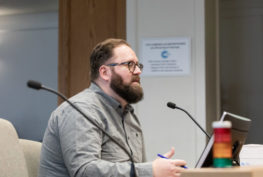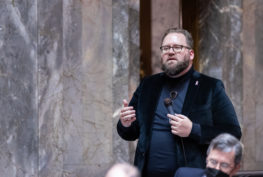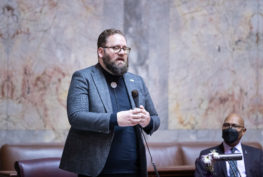In-school strategies to help students navigate the pitfalls of digital media and communication would be reviewed and improved by legislation scheduled to be heard at 8 a.m. tomorrow by the House Committee on Education.
Senate Bill 5449, sponsored by Sen. Marko Liias, D-Lynnwood, earlier passed the Senate on a strong, bipartisan 40-9 vote.
“We live in a dynamic environment where our young learners are being exposed to thousands of messages and advertisements, such as for alcohol, and there are folks online who are looking to prey on young people, not to mention risks such as malware and other cyber threats,” Liias said. “We need to make sure as our students are learning and growing that they understand the challenges posed by technology and can be responsible and safe consumers.”
Liias’ legislation would:
- Require the Washington State School Directors’ Association to review and revise its policy and procedures on electronic resources and Internet safety and to develop a checklist for school districts;
- Direct the Office of Superintendent of Public Instruction (OSPI ) to create a web-based location with links to recommended successful practices and resources to support digital citizenship, media literacy, and Internet safety; and
- Task OSPI with surveying teacher-librarians, principals, and technology directors to understand how they are currently integrating digital citizenship and media literacy education in their curriculum.
The bill expands on legislation passed in 2016 that was inspired by Claire Beach, a retired media literacy educator from the Edmonds School District, to establish curricula and programs to raise student awareness of the pitfalls of digital media.
“One of the lessons I always tried to instill in my students was that committed citizens can make a difference, and this legislation proves that,” Beach said. “This not only helps students become more responsible consumers of media, it shows them what can be accomplished if they engage with their elected officials.”
“Thanks to Claire’s leadership, our state is a national leader in the effort to help students deal with digital influences,” Liias said. “Even in retirement, she continues to teach us.”





